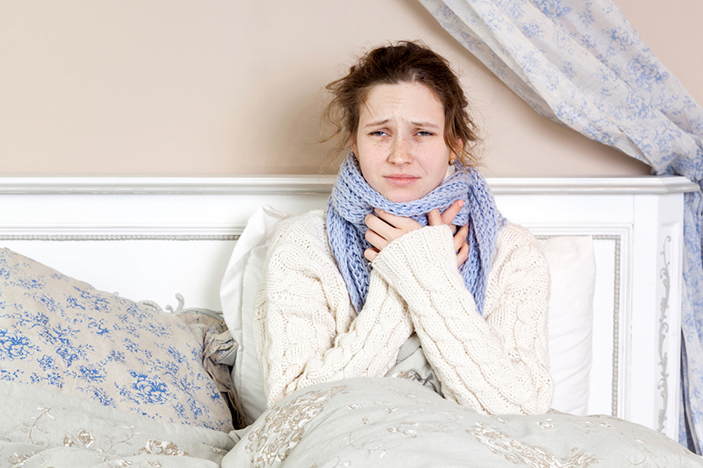
Winter is coming — and so is the painful infection known as strep throat. Here are some recommendations to keep in mind.
Strep throat is not like the common cold. Instead of being caused by a virus, it’s a bacterial infection that should be treated as soon as possible with antibiotics.
Symptoms of strep throat include fever, red and swollen tonsils, white patches or red dots in the throat, trouble swallowing, nausea and vomiting. Rare, but possible, complications include rheumatic fever.
Children tend to get strep most often, but adults can get it, too — especially if your child or someone else in your household has it. But is there anything that can actually be done to protect yourself from catching it?
Here are some tips to keep in mind this winter season, including hand hygiene and what to do if you share a household with someone who has a strep infection.
- Wash your hands with soap and water, especially after being in a public place, such as a school, being around anyone with strep throat and before you eat. It’s best to scrub well and wash for a minimum of 20 seconds.
- Carry hand sanitizer to use after touching public surfaces and before eating, if you can’t wash your hands. Use hand sanitizer that contains at least 60% alcohol.
- Try to avoid touching public surfaces (such as by using a paper towel to open a restroom door). Avoid water fountains, which could potentially have germs from others’ mouths on them.
- Don’t share utensils, cups or toothbrushes. This probably isn’t a good idea anyway, but it’s especially important during strep throat season, as the infection is highly contagious.
- Don’t share face towels or pillowcases with an infected person. If someone in your household is sick, minimize your exposure to common surfaces.
- Don’t leave dirty tissues around. Ask the infected person in your household to put their tissues directly into a wastebasket and to wash their hands as often as possible after doing so.
- Don’t touch your eyes, nose or face. No matter how hard you try, you’re probably going to get germs on your hands. But you can help prevent them from getting into your nose and mouth, by not touching your face.
- Keep your nose and mouth moisturized. Humidifiers can help keep mucus membranes moist and less susceptible to infection.
- Make sure an infected person in your house finishes all their medication, even if they feel better, to be sure the infection is gone.
- Keep your distance from infected people. You might not be able to help that, if you live with the person. But if your co-worker comes to work sick, keep your distance, since droplets from coughs or sneezes can transmit the infection.
- Stay away from smokers. Even secondhand smoke can irritate your throat and make it more vulnerable to a strep infection.
- Take care of your body. Getting regular sleep and exercise, and managing stress, can keep your immune system healthy and better able to resist infection.
If you do get strep throat, it’s best to schedule an appointment with your doctor, as soon as possible.
“The treatment for a strep infection is antibiotics and, sometimes, steroids to decrease the inflammation,” explains Karla O’Dell, MD, an otolaryngologist at Keck Medicine of USC and associate professor of clinical otolaryngology – head and neck surgery at the Keck School of Medicine of USC.
To help reduce any pain or discomfort, she recommends staying well hydrated; sucking on hard candy; eating cool, soft foods; and using a humidifier at night. Dr. O’Dell also suggests avoiding cough drops and mints, since they can dry out the throat.
“Gargling with salt water is okay to do, if it feels good, but it will not make the infection go away faster or prevent one,” she adds. “If you have recurrent infections, you should be evaluated by an otolaryngologist.”
Topics
